Climate change seems very much upon us and it is scary!
You cannot open the paper without reading about wild snowstorms, plunging temperatures, flooding, excessive rainfall and mudslides. However, Tuesday January 3, 2023, in New York City, was a strange but locally wonderful day. It had been raining gently off and on for days and the temperature was mild, going all the way to 50+ degrees Fahrenheit.
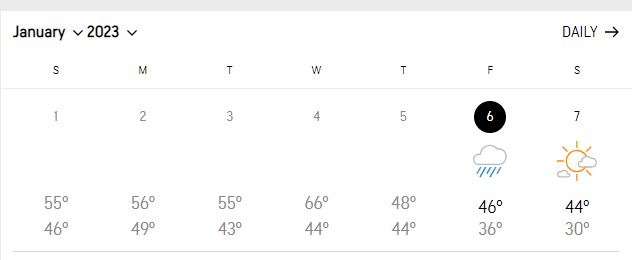
Liberated from the house, I decided to clean the yard of downed branches. We now have organic recycling on Thursdays and I have about eight garbage cans available. Without much effort that day, I filled about five of them.
And then I had an idea.
First I must digress.
When I first started gardening, I discovered that I had so much shade on the property that I was unable to grow a flamboyantly colorful garden. There is much to say for shade particularly on those unbearably hot days of summer but I had to learn about shade plants. Some shade plants I bought based on nursery suggestions or reading. Over time, I did meet other gardeners and advice is always welcome. I learned about ferns, hostas and astilbes.
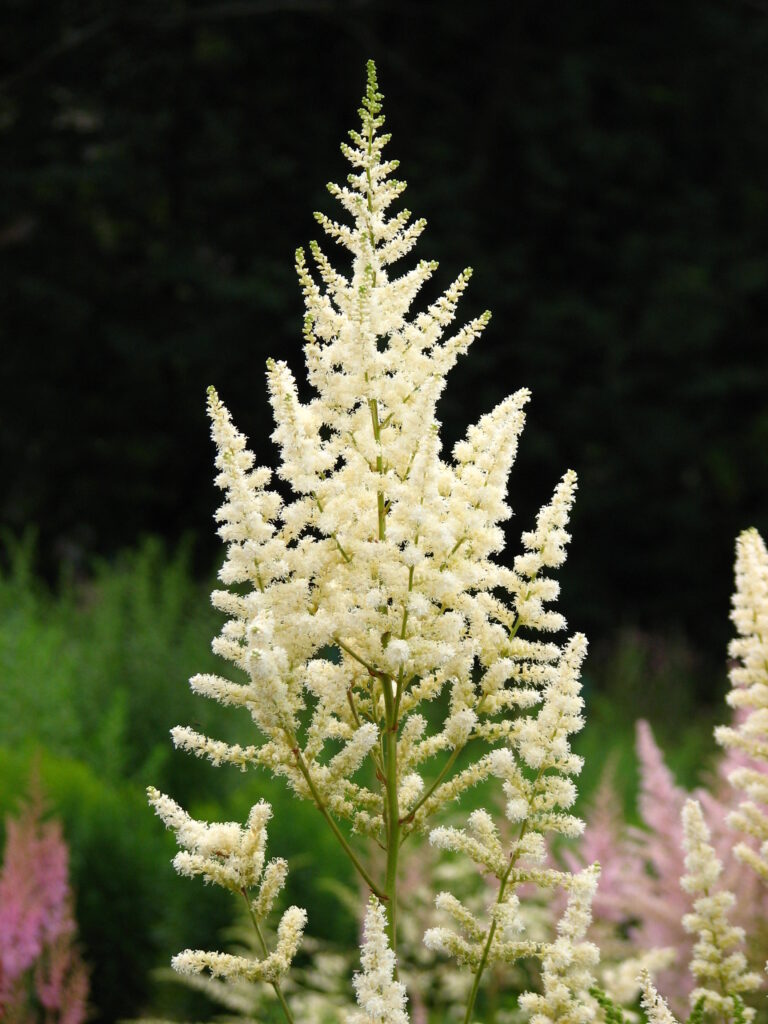
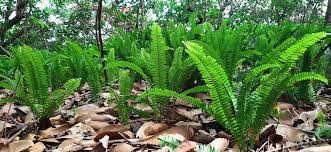
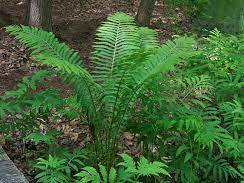
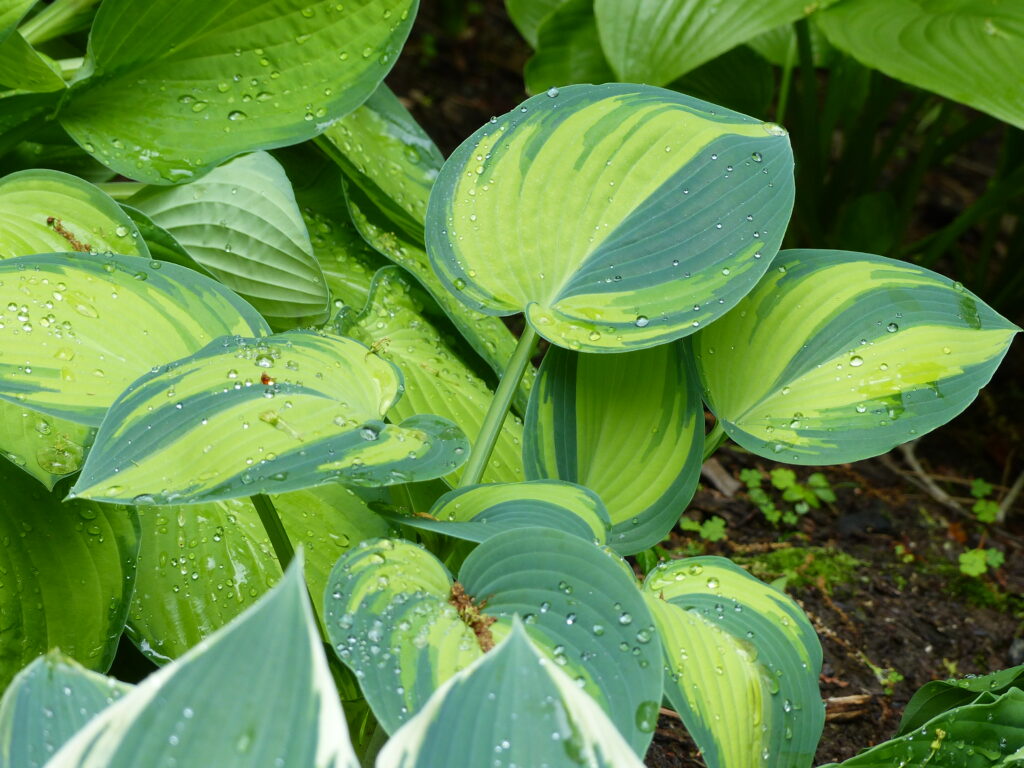
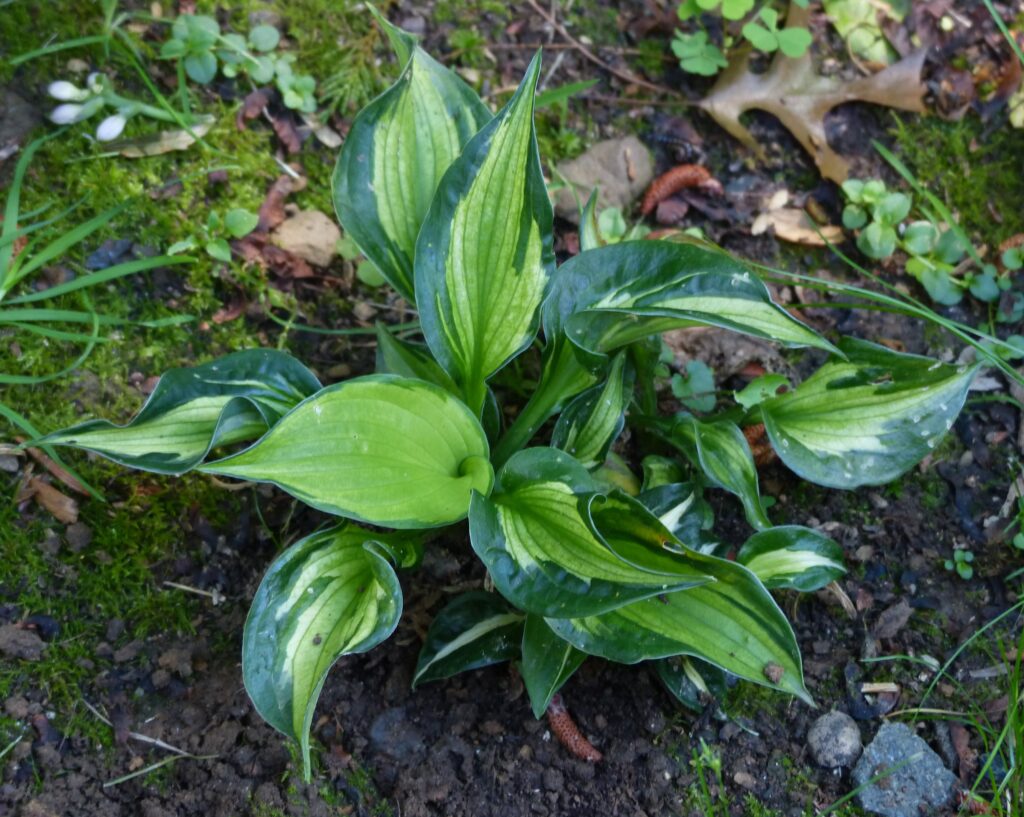
Difficult Plant
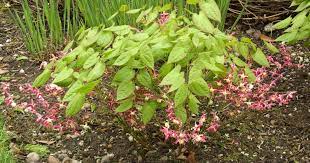
The plant I want to discuss , however, is epimedium – genus Epimedium. There are numerous species and have been grown in the West for 100-150 years. They are primarily native to China and have several common names including barrenwort and bishop’s hat. I inquired of a well respected gardener about the growth habits of epimedium since it is highly recommended for shady areas and it is semi-evergreen meaning that it keeps some of its leaves even in the winter.. “Yes”, I was told. “Great plant for those barren spots in a shade garden. It is not invasive and is well-behaved around other plants in the same bed.” Famous last words…..
I bought a number of plants and, indeed, they took well to shady areas, spreading over several garden seasons. Since they seemed to be doing so well I was enthusiastic enough to occasionally lift several plants and move them to other problem areas. I did gradually notice, however, that some plants near them were not doing well. Last summer, I decided to investigate.
What I discovered was that this well-behaved plant grew thick, heavy root mats. Instead of benignly growing around its neighbors, it was trampling them. By this point, the epimedium was in a lot of beds and I am not fond of the type of heavy work necessary to remove them all. I thought about it for a few days and realized I had no choice. It was epimedium or everything else!
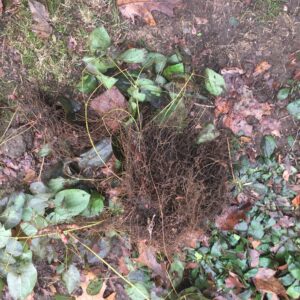
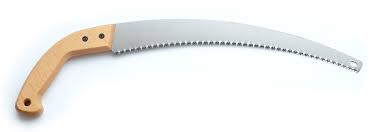
I started removing the plants but it was very hard work, involving pitchforks and cutting tools. Small patches and new growth can be lifted out with a small digging tool. Older patches have the heavy mats and they can be so extensive that I cannot lever them out simply with a pitchfork. Instead, I have to cut the mat into chunks and remove the mat piecemeal.
Particular Difficulty
However, there was another serious problem. In my enthusiasm I had put clumps into my hosta beds and now needed to remove them. But hosta are fragile plants. If you step on them while attempting the hard work of getting out the epimedium, you destroy some of the leaves and they will not regrow that season. I felt that the epimedium was fighting me to a draw.
Now back to this week. Because of the rain, I expected the ground to be soft. I went to my largest hosta bed. Since we have gone through fall and had some colder weather, the hosta has died back to its roots meaning that I could walk into the bed without damaging the hosta. The epimedium, however, was standing there looking at me. All I had to do was take my various tools and remove all that invasive epimedium.
My sanitation men just love me!
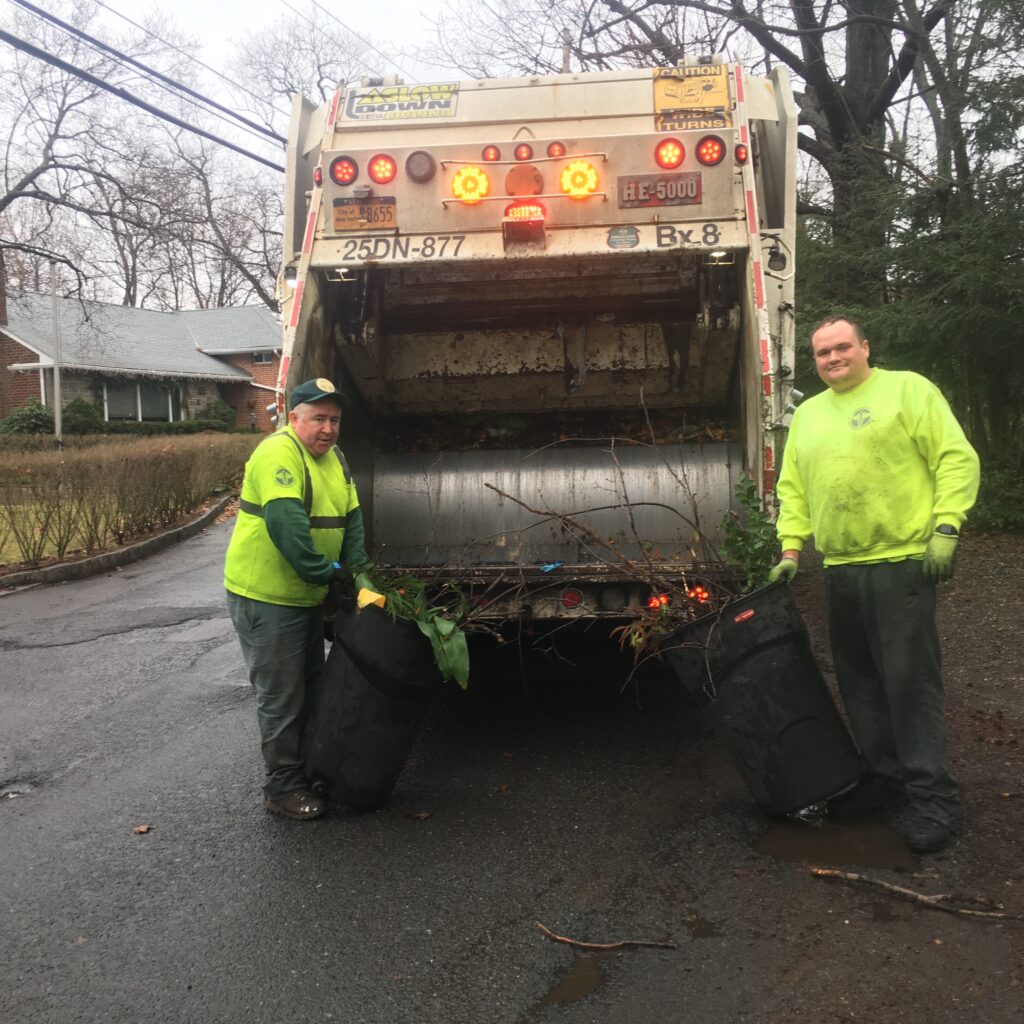
If you have enjoyed this piece, you might enjoy my book, A Habit of Seeing: Journeys in Natural Science.

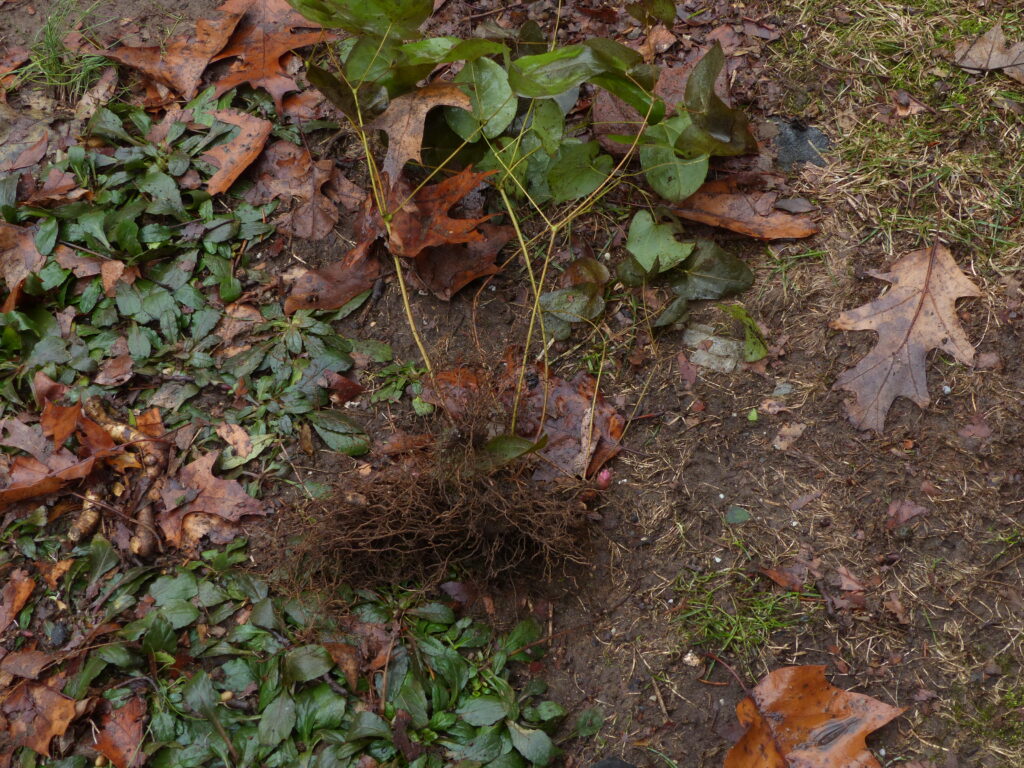
Please summarize the lessons learned, i.e. “famous last words”, and how the new year of gardening on your shady property will be different. Is there a local young person who might have enjoyed the exercise? Did all the yard waste go to composting?
Thank you. Just reading about the effort, exhausted me. But I’m sure it is very healthy to do all that work.
I really enjoyed this blog.